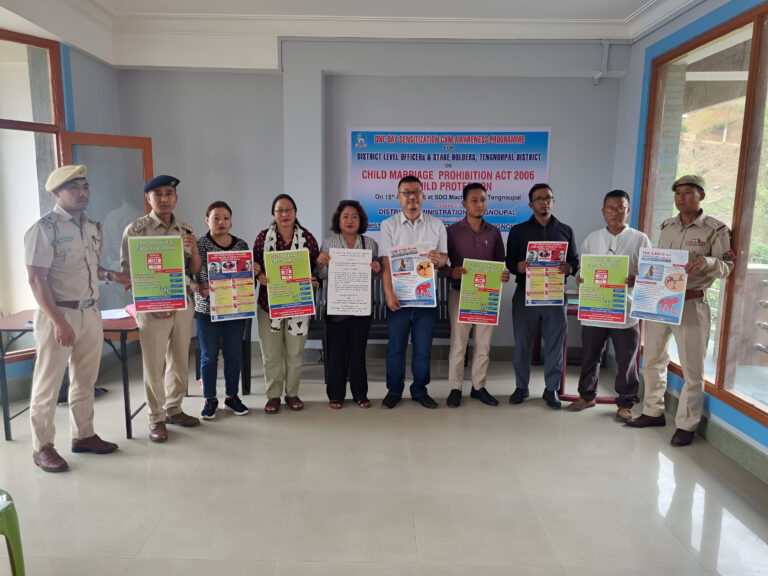Manipur High Court Directs State to Reorganize Loktak Development Authority (LDA)
Summary of the News
The Manipur High Court has issued a directive to the state government to reorganize the Loktak Development Authority (LDA). This decision comes after concerns regarding the mismanagement and lack of transparency in the authority, which is responsible for the conservation and development of Loktak Lake, the largest freshwater lake in northeastern India. The reorganization aims to improve efficiency, ensure proper resource management, and safeguard the lake’s ecological balance.
Understanding the Loktak Development Authority and Its Role
What is the Loktak Development Authority (LDA)?
The Loktak Development Authority (LDA) was established to oversee the conservation and sustainable development of Loktak Lake. Loktak Lake, a Ramsar site, is crucial to the ecosystem, culture, and economy of the surrounding communities. The lake is not only a source of livelihood for fishermen but also supports diverse wildlife, including the endangered Sangai deer.
The LDA is responsible for various initiatives, such as removing phumdis (floating vegetation), improving water quality, and promoting eco-friendly tourism. However, over the years, the authority has faced criticism for inefficiency, lack of transparency, and poor implementation of projects.
The Importance of Loktak Lake
Loktak Lake is a vital freshwater resource for the people of Manipur. It is a source of livelihood for thousands of fishermen and plays a significant role in agriculture, water supply, and local biodiversity. The lake is famous for its floating islands, known as phumdis, which provide a unique ecosystem for many species.
The lake is also home to Keibul Lamjao National Park, the world’s only floating national park, which shelters the endangered Sangai deer. This rich biodiversity makes it essential to protect the lake from environmental degradation.
The High Court’s Directive: What It Means for Manipur
Why Reorganize the LDA?
The Manipur High Court’s decision to reorganize the LDA stems from increasing concerns over its inability to effectively manage Loktak Lake. Various issues such as mismanagement of funds, unplanned projects, and lack of coordination with local communities have plagued the authority’s functioning.
The reorganization is expected to bring greater accountability, improve the management of resources, and enhance transparency in its functioning. The High Court’s directive is seen as a step toward ensuring that the LDA fulfills its mandate of conserving Loktak Lake and promoting sustainable development.
Challenges Faced by the LDA
Over the years, the LDA has been criticized for failing to meet its goals. One of the major issues has been the removal of phumdis from the lake. While necessary for maintaining the ecological balance, the process has often been inefficient and slow, causing further environmental degradation.
There have also been concerns regarding the allocation of funds. Several projects initiated by the LDA have either been delayed or poorly implemented, raising questions about transparency and accountability within the authority.
Additionally, the LDA has struggled to coordinate with local communities that depend on the lake for their livelihoods. The lack of community involvement in decision-making processes has led to dissatisfaction and protests from fishermen and other stakeholders.
The Court’s Role in Driving Accountability
The High Court’s intervention is significant as it emphasizes the need for accountability in managing natural resources. By directing the state government to reorganize the LDA, the court aims to create a more efficient and transparent body that can effectively address the challenges facing Loktak Lake.
The court’s directive also reflects the growing recognition of the need to balance development with environmental conservation. The reorganization of the LDA is expected to prioritize sustainable practices that protect the lake’s ecological balance while promoting economic growth.
A New Vision for Loktak Lake: What’s Next?
Strengthening Conservation Efforts
The reorganization of the LDA provides an opportunity to strengthen conservation efforts for Loktak Lake. With better management practices, the authority can focus on restoring the lake’s health by addressing issues such as water pollution, habitat destruction, and the loss of biodiversity.
One of the key areas of focus should be the removal of phumdis. This process must be carried out more efficiently, using eco-friendly methods that minimize harm to the lake’s ecosystem. Additionally, efforts should be made to control water pollution, which has become a growing concern due to agricultural runoff and untreated sewage entering the lake.
Promoting Sustainable Tourism
Loktak Lake is a popular tourist destination, attracting visitors with its unique floating islands and diverse wildlife. However, unchecked tourism can have negative environmental impacts. The reorganization of the LDA should include a focus on promoting sustainable tourism practices that minimize harm to the lake while providing economic opportunities for local communities.
Eco-friendly tourism initiatives, such as guided boat tours, birdwatching, and cultural experiences with local communities, can help generate income while raising awareness about the importance of conservation. These initiatives should be developed in consultation with local stakeholders to ensure that tourism benefits the community without damaging the environment.
Involving Local Communities in Decision-Making
One of the major criticisms of the LDA has been its failure to involve local communities in decision-making processes. The reorganization presents an opportunity to change this by creating platforms for dialogue and collaboration with stakeholders who depend on the lake for their livelihoods.
By involving local communities in the management of Loktak Lake, the LDA can ensure that conservation efforts align with the needs of the people who rely on the lake for fishing, agriculture, and tourism. This participatory approach can lead to more sustainable outcomes and reduce the likelihood of conflicts between the authority and the community.
Improving Transparency and Accountability
The High Court’s directive highlights the need for greater transparency and accountability within the LDA. To achieve this, the reorganized authority must implement mechanisms for tracking progress, monitoring funds, and ensuring that projects are completed on time and within budget.
Regular audits and reports should be made publicly available to ensure that the LDA’s activities are transparent. Additionally, the authority should establish clear guidelines for the allocation of resources and the selection of projects, ensuring that decisions are made based on scientific evidence and community needs.
Potential Roadblocks: What Challenges Lie Ahead?
Balancing Development and Conservation
One of the biggest challenges facing the LDA will be balancing the need for economic development with the imperative of conserving Loktak Lake’s fragile ecosystem. While development projects such as tourism and infrastructure can provide economic benefits, they must be carefully managed to avoid harming the lake’s biodiversity.
The LDA will need to work closely with environmental experts, local communities, and government agencies to ensure that development projects are sustainable and do not compromise the health of the lake.
Securing Funding for Conservation Projects
Funding has been a major issue for the LDA in the past, with several projects being delayed due to a lack of financial resources. To effectively manage Loktak Lake, the reorganized authority will need to secure adequate funding for conservation initiatives, infrastructure development, and community engagement programs.
The LDA should explore opportunities for collaboration with national and international organizations that support environmental conservation. Grants, donations, and partnerships with environmental NGOs could provide much-needed financial support for the authority’s projects.
FAQs
- What is the Loktak Development Authority (LDA)?
The LDA is a government body responsible for the conservation and development of Loktak Lake, the largest freshwater lake in northeastern India. - Why did the Manipur High Court order the reorganization of the LDA?
The court’s directive was issued to address concerns over the mismanagement, lack of transparency, and inefficiency within the LDA, which has hindered the effective conservation of Loktak Lake. - What are the main challenges facing the LDA?
The LDA has faced criticism for slow phumdi removal, mismanagement of funds, and failure to involve local communities in decision-making, leading to dissatisfaction among stakeholders. - How will the reorganization of the LDA benefit Loktak Lake?
The reorganization aims to improve transparency, accountability, and efficiency in managing the lake, which could lead to better conservation efforts, sustainable tourism, and involvement of local communities. - What role can local communities play in conserving Loktak Lake?
Local communities are crucial stakeholders in the conservation of Loktak Lake, as they rely on it for their livelihoods. Involving them in decision-making processes can lead to more sustainable outcomes and reduce conflicts.

